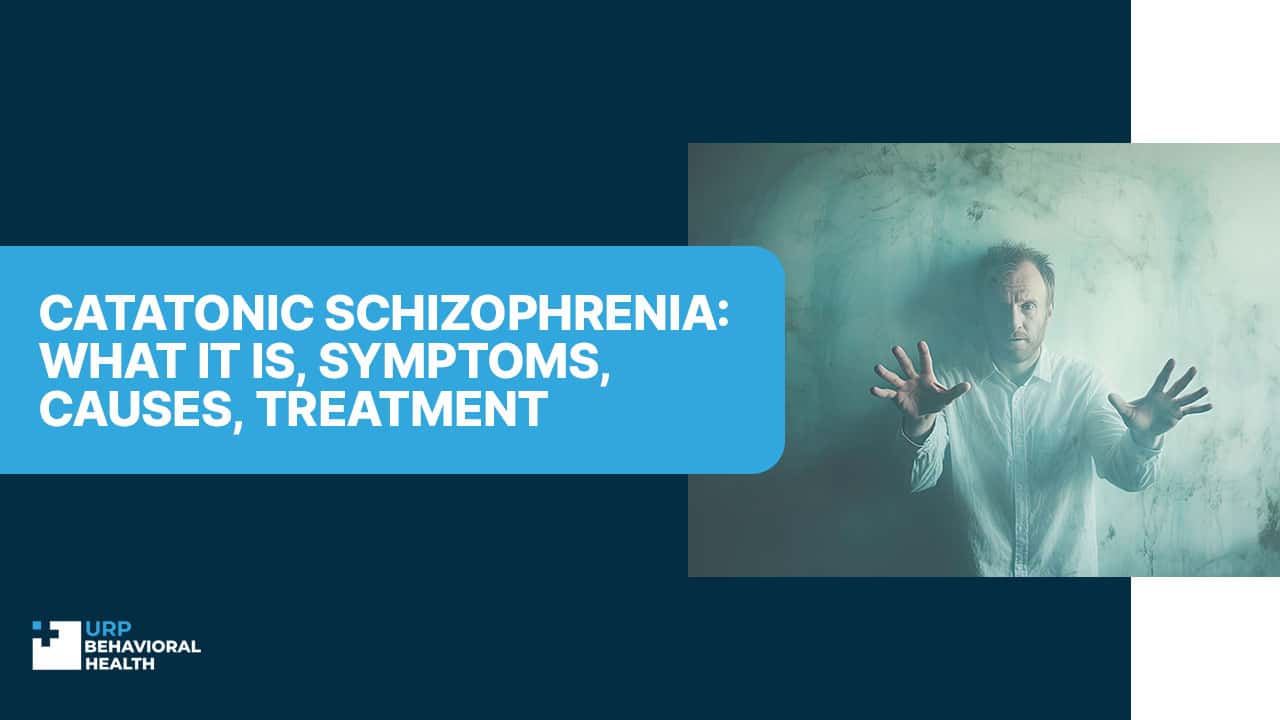
Catatonic Schizophrenia: What It Is, Symptoms, Causes, Treatment
Catatonic schizophrenia is a subtype of schizophrenia characterized by disturbances in movement and behavior. It is less common than other forms of schizophrenia but can be particularly severe. Understanding catatonic schizophrenia, its symptoms, causes, and treatment options is crucial for effective management and support of affected individuals.
What is Catatonia in Schizophrenia?
Catatonia is a state of psycho-motor immobility and behavioral abnormality manifested by stupor. In schizophrenia, catatonia can present as extreme physical rigidity or repetitive, purposeless movements. Catatonic behavior in schizophrenia can also include echolalia (repeating others’ words) and echopraxia (mimicking others’ movements). It is a serious condition that requires immediate medical attention [1][2].
Catatonic Schizophrenia Symptoms
Symptoms of catatonic schizophrenia include:
- Stupor: Lack of response to the environment and inability to move or speak.
- Mutism: Inability or refusal to speak.
- Negativism: Opposition or no response to instructions or external stimuli.
- Posturing: Maintaining a rigid or bizarre posture for extended periods.
- Catalepsy: Maintaining uncomfortable positions for a long time.
- Echolalia and echopraxia: Mimicking speech or movements of others.
These symptoms can severely impact an individual’s ability to perform daily activities and interact with others. Recognizing these symptoms early is crucial for timely intervention and treatment [2][3].
Our team will verify your insurance and design a plan tailored to your needs.
Cause of Catatonic Schizophrenia
The exact cause of catatonic schizophrenia is not fully understood, but it is believed to result from a combination of genetic, neurobiological, and environmental factors. Abnormalities in brain structures and neurotransmitter systems, particularly involving dopamine and gamma-aminobutyric acid (GABA), are thought to play a significant role. Stressful life events and substance abuse can also trigger or exacerbate symptoms [3][4].
Diagnosis
Diagnosing catatonic schizophrenia involves a thorough clinical assessment by a mental health professional. This includes a detailed medical history, physical examination, and psychiatric evaluation. Diagnostic criteria for catatonia include the presence of at least three of the following symptoms: stupor, mutism, negativism, posturing, catalepsy, echolalia, and echopraxia. Brain imaging and other tests may be used to rule out other conditions that can mimic catatonic symptoms [1][4].
Treatments of Catatonic Schizophrenia
Treatment for catatonic schizophrenia typically involves a combination of therapies and support. Immediate medical attention is crucial for severe cases, and treatment may include hospitalization. Therapy for catatonic schizophrenia often includes behavioral therapy, electroconvulsive therapy (ECT), and supportive therapies to help individuals regain normal functioning. Ongoing support from mental health professionals and caregivers is essential for managing the condition long-term. It is important to consult with healthcare professionals to develop a comprehensive treatment plan that addresses the unique needs of each individual [1][2][3].
Reach out today and let us create a treatment plan designed around your needs.
Conclusion
Catatonic schizophrenia is a severe and challenging condition that requires immediate and ongoing medical attention. Understanding its symptoms, causes, and treatment options is crucial for providing effective support to affected individuals. Early diagnosis and intervention can significantly improve outcomes and quality of life. If you or someone you know is experiencing symptoms of catatonic schizophrenia, seeking professional help is essential for managing the disorder and improving overall well-being [1][2][3].
Sources
- [1] “Catatonia: A disorder of movement and mood”. https://www.medicalnewstoday.com/articles/192263
- [2] “Schizophrenia”. https://www.nimh.nih.gov/health/topics/schizophrenia
- [3] “Catatonia in schizophrenia: prevalence, clinical correlates, and treatment response”. https://www.sciencedirect.com/science/article/abs/pii/S0920996417304747?via=ihub
- [4] “Catatonia and its relationship with schizophrenia: The need for further studies”. https://www.sciencedirect.com/science/article/abs/pii/S0920996422004315
















